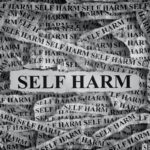
Amelia Talbot looks at a recent qualitative study of patient and carer perspectives, which explores the reasons why some patients do not receive a psychosocial assessment in emergency departments following self-harm.
[read the full story...]
Amelia Talbot looks at a recent qualitative study of patient and carer perspectives, which explores the reasons why some patients do not receive a psychosocial assessment in emergency departments following self-harm.
[read the full story...]
Andie Ashdown and Theophanis Kyriacou review a study from the Netherlands that looks at the links between childhood trauma, bullying-victimization and mental illness in people from sexual minority groups.
[read the full story...]
Clarissa Giebel explores a recent prospective study using data from the English Longitudinal Study of Ageing (ELSA), which looks at the longitudinal relationship between loneliness, social isolation, and frailty in older adults in England.
[read the full story...]
Zuva Dengu reviews a German cross-sectional representative study exploring the psychological distress of refugees from Syria, Iraq, Afghanistan, Eritrea and other countries, which focuses on the individual and contextual risk factors and potential consequences for integration of refugees into German society.
[read the full story...]
Sadhbh Byrne summarises a timely scoping review on mental health interventions for immigrant and refugee children and youth living in Canada.
[read the full story...]
In her debut blog, KCL student Melisa Eyuboglu summarises a meta-synthesis, which investigates the CATCH model (Commitment, Advocacy, Trust, Collaboration and Health) for addressing domestic violence and abuse.
[read the full story...]
In his debut blog, Christian Dalton-Locke reviews a recent longitudinal (online survey) study, which looks at mental health outcomes during the COVID-19 pandemic. The research finds that women, young adults, those from socially disadvantaged backgrounds, and people with pre-existing mental health problems were affected worse than others.
[read the full story...]
Georgie Parker summarises a qualitative study which finds that therapy dogs may help to improve research engagement in “hard to reach” populations.
[read the full story...]
Talen Wright reviews a recent paper on the Trans Pathways study, which looks at mental health care for transgender and gender diverse young people in Australia.
[read the full story...]
Nada Abou Seif summarises a recent Swedish cohort study of 3.1 million people, which looks at suicide risk in people with post-traumatic stress disorder.
[read the full story...]